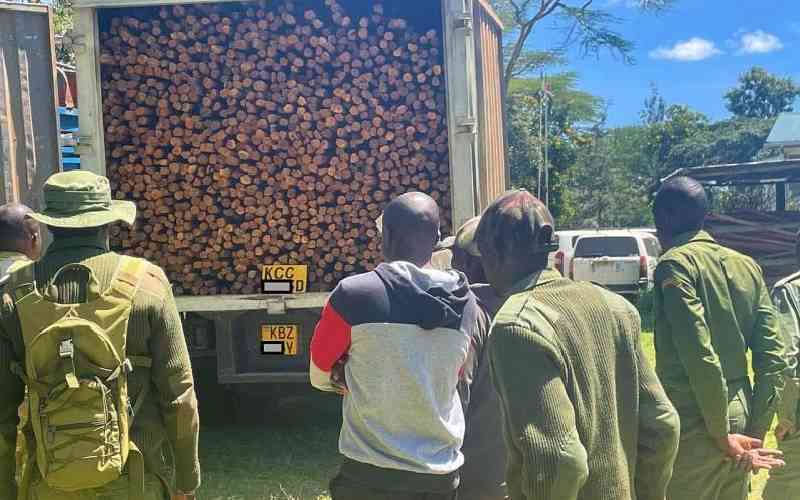The struggle to protect Kenya's last indigenous woodland

A quiet devastation is unfolding in Loita Forest — one of Kenya’s last indigenous woodlands and a cradle of Maasai heritage.
What was once a sacred refuge of towering trees, medicinal plants, and open grazing lands is now caught in a struggle between tradition and modern pressures.
Chainsaws are buzzing, fences are rising, and a forest that stood untouched for generations is now in jeopardy.
Experts warn that if the destruction continues at its current pace, Loita Forest could vanish within a decade.
Locally known as Naimina Enkiyio — translated as “The Forest of the Lost Child” — Loita Forest in Narok County spans 330 square kilometres near the Tanzanian border.
Shumbai Baari, a local tour guide born on the forest’s edge, remembers a time when the hills were pristine and sacred. “These hills rise to 2,800 metres, cloaked in old-growth forest and Spanish moss,” he says. “What protected it wasn’t the law — it was our culture.”
A revered guardian of Maasai culture, he has long championed the forest’s protection.
“I’ve defended this forest in court and spent my life calling for its preservation,” he states. “If it disappears, so does our identity. Our future dies with it.”
Ironically, the most serious threats now come from within the community.
“It’s us,” admits Ntoros Baari, a former chairman of the now-defunct Narok County Council.
“Greed and population growth have driven some locals to cut timber for profit and sell their land to speculators encouraged by outside buyers.”
The result is a patchwork of private plots and deforested land, where once stood a unified cultural and ecological sanctuary.
Just this week, Kenya Wildlife Service officers and Mara Elephant Project (MEP) rangers intercepted a lorry carrying over 2,000 posts from endangered cedar trees.
Its number plates had been concealed, indicating an intentional effort to evade law enforcement.
Stay informed. Subscribe to our newsletter
MEP has operated in Loita since 2019, working to encourage landowners to preserve and protect forested areas.
Backed by the LGT Venture Philanthropy Foundation, the organisation collaborates with locals to conserve both intact and subdivided parts of the forest.
“We welcome this conservation project,” says Charles Kapolonto, a community elder.










